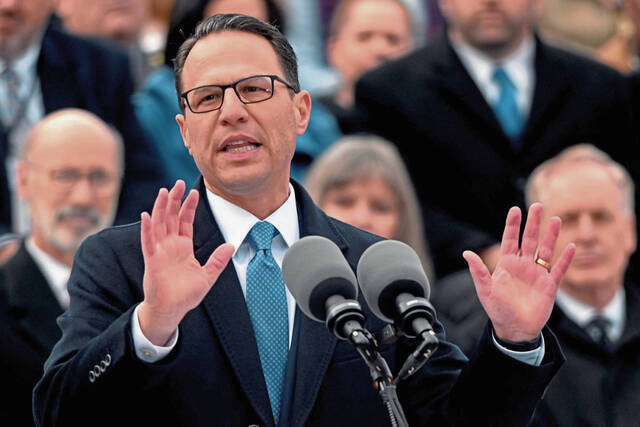Yet again, Pennsylvania starts the fiscal year without a budget.
Who could have predicted this?
Almost anyone who has paid even grudging attention to the state’s woefully gridlocked government would have trouble missing it. Failing to have the legislative and executive branches agree on what the state will do and how to pay for it is a July tradition as much as hot dogs and fireworks.
Sometimes, it’s just days or weeks. In 2022, for example, it was eight days.
But, sometimes, it’s the kind of entrenched position that can lead to employee layoffs and public services being closed down. In 2020, the process dragged on after Thanksgiving. The 2015 budget wasn’t passed until March 2016.
The past 20 years have been marked by this, with 55% of budgets coming late. Others came without the governor’s signature at all.
Under Gov. Ed Rendell, fighting over the budgets was the default position. His longest impasse took him into October and involved requiring state employees to stay on the job even though they weren’t being paid.
Tom Wolf played chicken with the Legislature for nine months in his first year as governor. In his eight years, half of the budgets were late.
Is this that unusual? Doesn’t the government always come down to the wire on spending? Not this badly.
According to Temple University, from 1961 to 2003, the budget passed late 32.5% of the time. That means today’s numbers show a 22.5% increase.
So Gov. Josh Shapiro’s first budget is really no surprise. Like his predecessors, he and his lawmaker opposition are engaged in a public game of arm wrestling to establish control. But Shapiro’s battle is less like Wolf’s very partisan contest than it is like Rendell’s push for a specific program.
Where Rendell struggled to get all Republicans and some Democrats to embrace a tax increase in 2009, Shapiro’s support of a Republican plan to give money to a private school voucher program is proving hard for his fellow Democrats to swallow.
So while the idea of a standoff over the budget is nothing new, Pennsylvania is in uncharted territory. A liberal governor is siding with the GOP over a conservative proposal, while the Democrats are promising to hold up passage in the House of Representatives.
Even if you predicted a late budget six months ago, it’s unlikely anyone saw this strange game of political alliances playing out quite the way it is.








